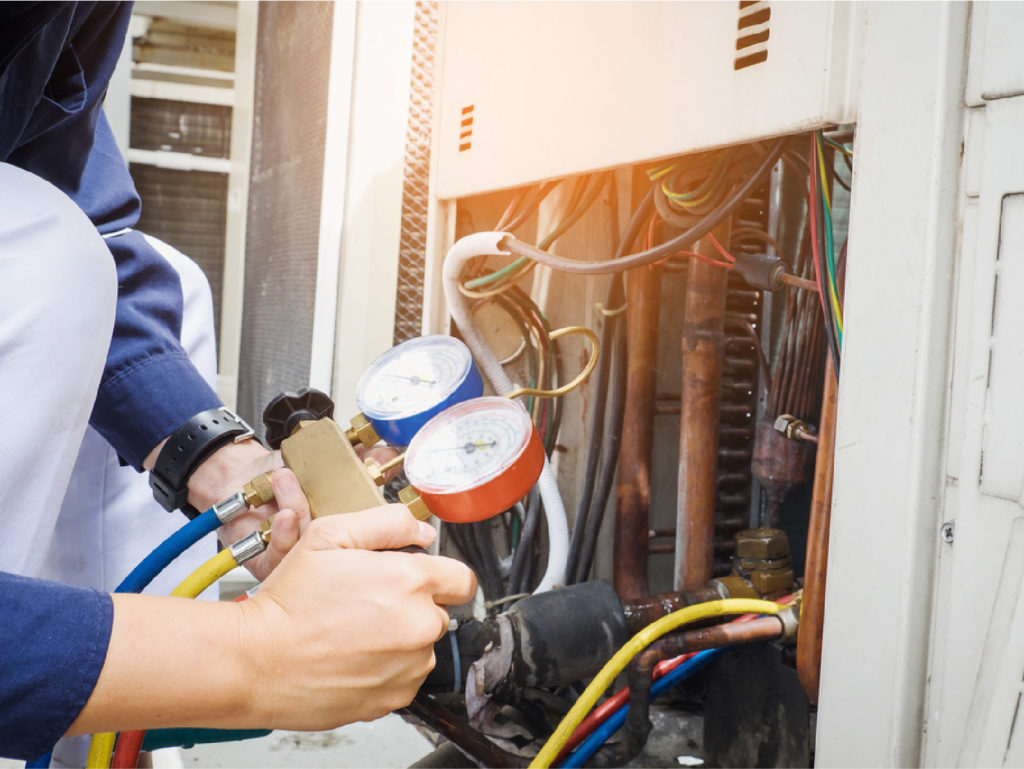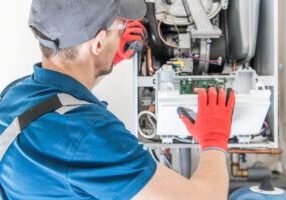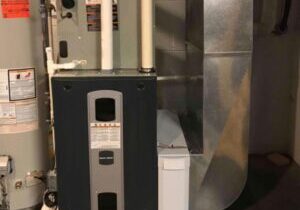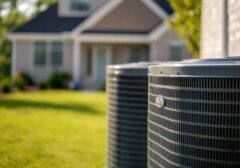“Winter is coming” — Eddard Stark.
With temperatures outside dropping, many homes will start to see their heating bills increase. Learn what factors can cause your bill to go up and what you can do to lower it while still keeping your home warm.

WHAT INCREASES YOUR HEATING BILL?
There are a few factors that can contribute to your heating bill being higher than normal in the winter months.

Seasonal Changes
Obviously, as it gets colder outside, we want to be warmer inside our homes. This causes people to set their thermostats higher than normal to really crank up the heat. Depending on the temperature change between your home and the outside world, your furnace could be working overtime to maintain the heat that keeps you comfortable.
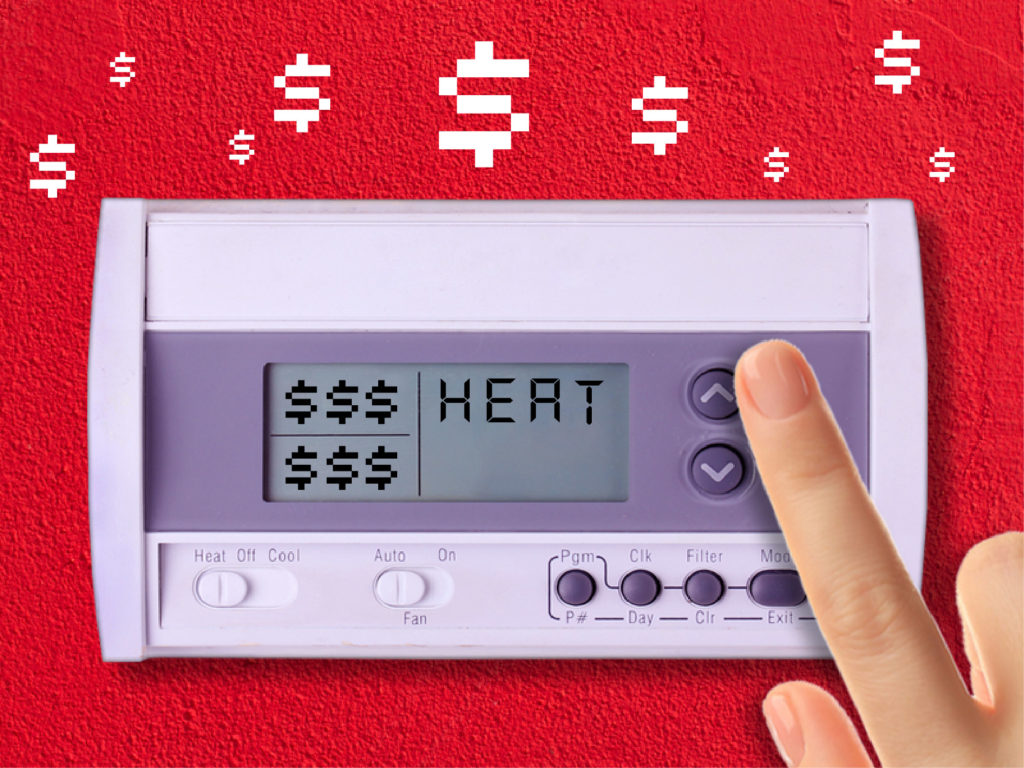
Additional Laundry
One way to combat the chill in the winter is to pile on layers. Whether it’s extra clothes or multiple blankets, all of these items are going to need to be washed at some point. This will result in having to do more laundry, and constantly running the dryer will also increase your energy or heating bill.

Poor Insulation
If your home is older, or not properly insulated, you could be losing heat through leaky windows or drafty doors. Since the heat is leaking freely due to poor insulation, you might find that you’ll need to run your heater more often or at a higher temperature to maintain your comfort levels. This will significantly increase your heating bill and you’ll be left wondering why your house doesn’t seem as warm as it should be when the heater is always running. If you don’t want to add any insulation to your home, try adding a door draft stopper to doors that feel colder.
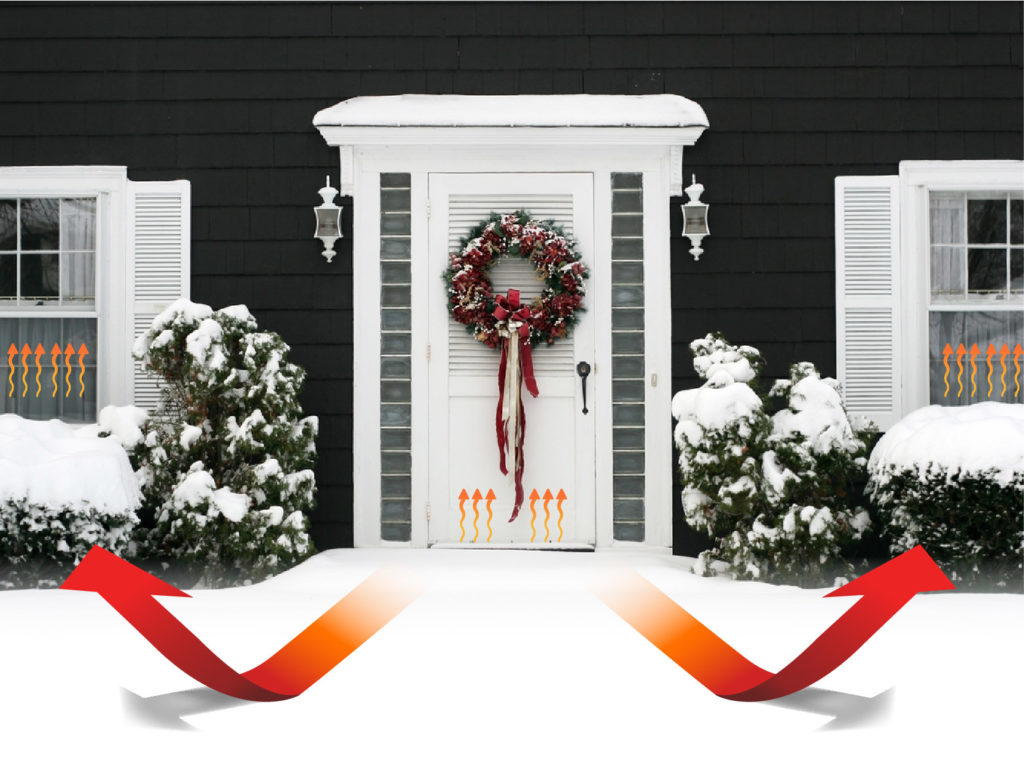
Inefficient Furnace
Another large hit to your wallet could be the fact that your furnace isn’t functioning as it should. If the heating system is outdated or hasn’t been serviced in a while, it could be struggling to hit optimal performance.
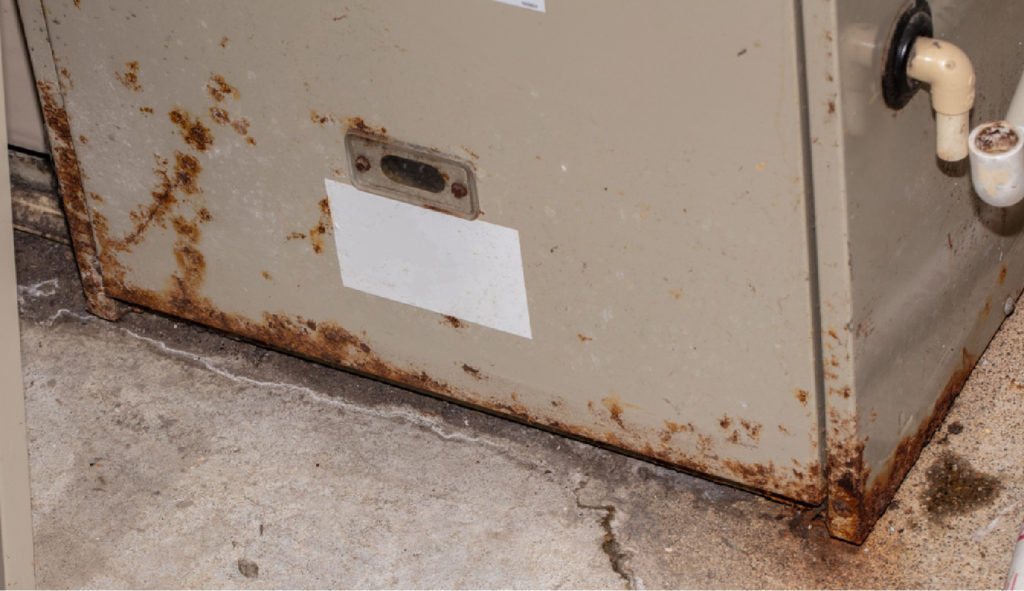
HOW TO LOWER YOUR HEATING BILL
If you want to bring your heating bill down, there are a few steps you can take to reduce the amount of energy you are using in your home.
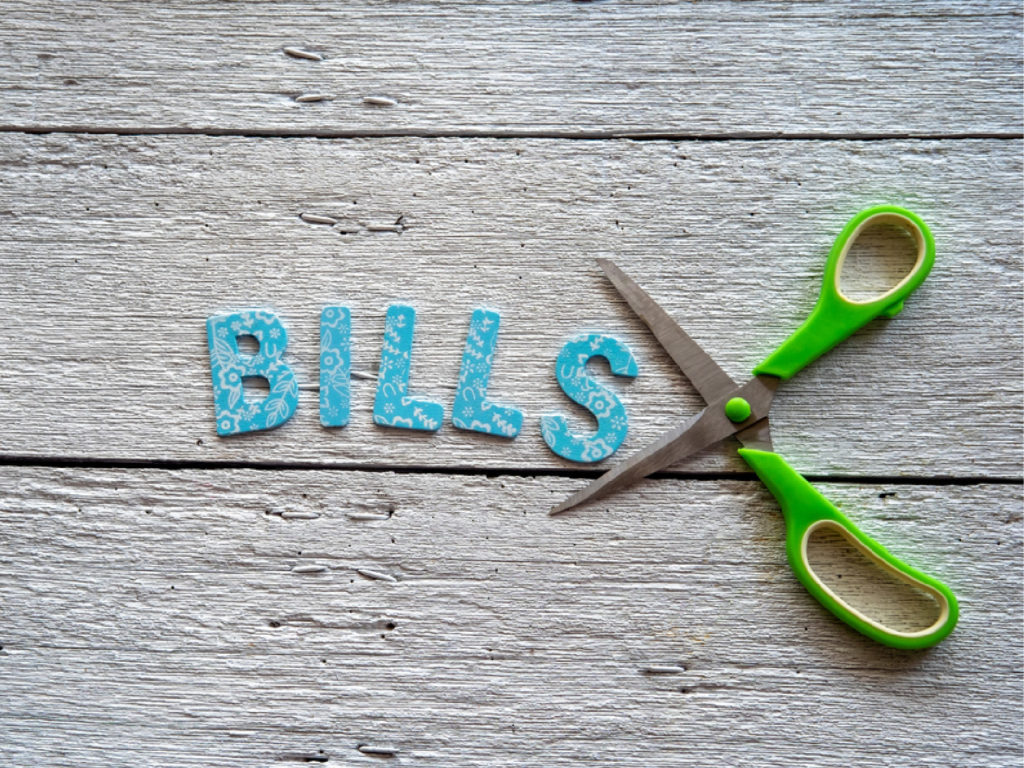
Set Your Thermostat to a Lower Temperature
Dad’s everywhere will rejoice in this piece of advice. While lowering the temperature on your thermostat may seem counterproductive when you want to stay warm, you likely won’t feel it if you drop the temperature a few degrees. However, those few degrees could save about 5% to 10% on your heating costs.
Purchase a Programmable Thermostat
When you set your regular thermostat, it will cycle at all hours of the day and night to ensure that your home stays at the temperature you desire. With a programmable thermostat, the system can be set to only run when people are home. This helps reduce the cost of your heating bill since you are only using the heat when you need it instead of heating or cooling an empty house. In fact, some smart thermostats can actually “learn” your behavior and adjust the temperature accordingly.
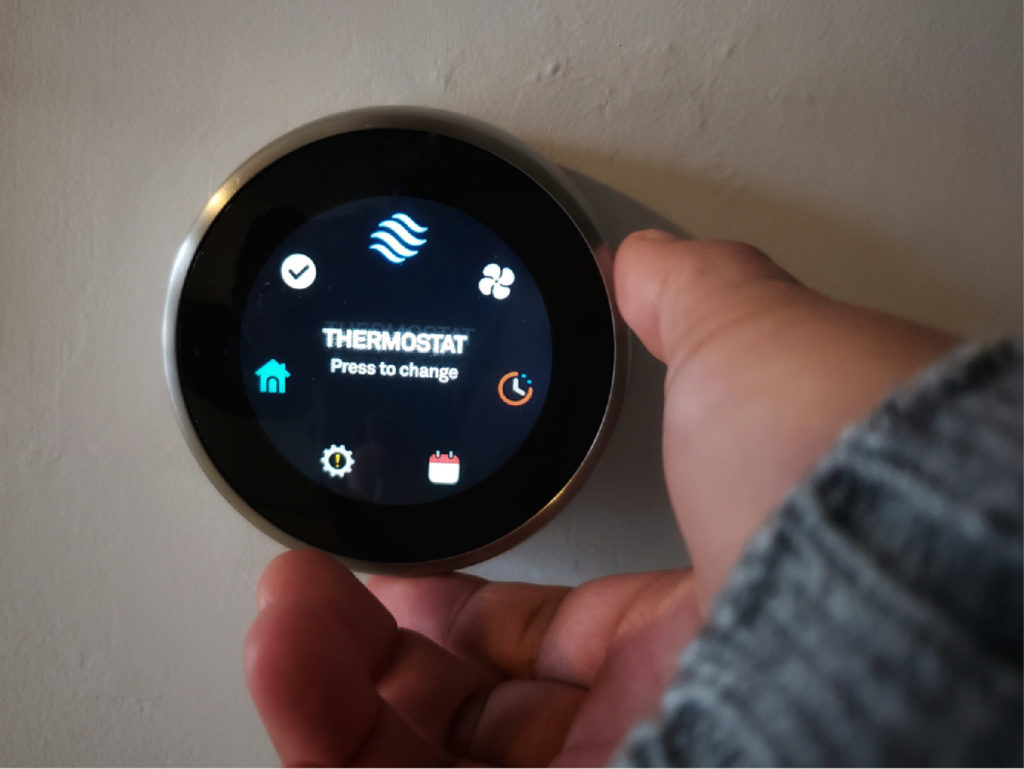
Bundle Up With Layers
Keeping your home at a lower temperature and staying warm with layers can help you stay comfortable while also keeping your heating bill down. With the thermostat lowered, the extra laundry won’t adversely affect your energy or heating bill. Wear thick socks, layer shirts and sweaters, or cuddle up under some blankets so that you can stay warm without spending extra money.

Increase Insulation
Whether you need to add weatherstripping around doors or want to upgrade to double-paned windows, taking these steps can increase the insulation in your home and help keep the heat inside. Not only will the added insulation help keep you warm in the winter — it will also help keep you cool in the summer and save on year-round energy costs.
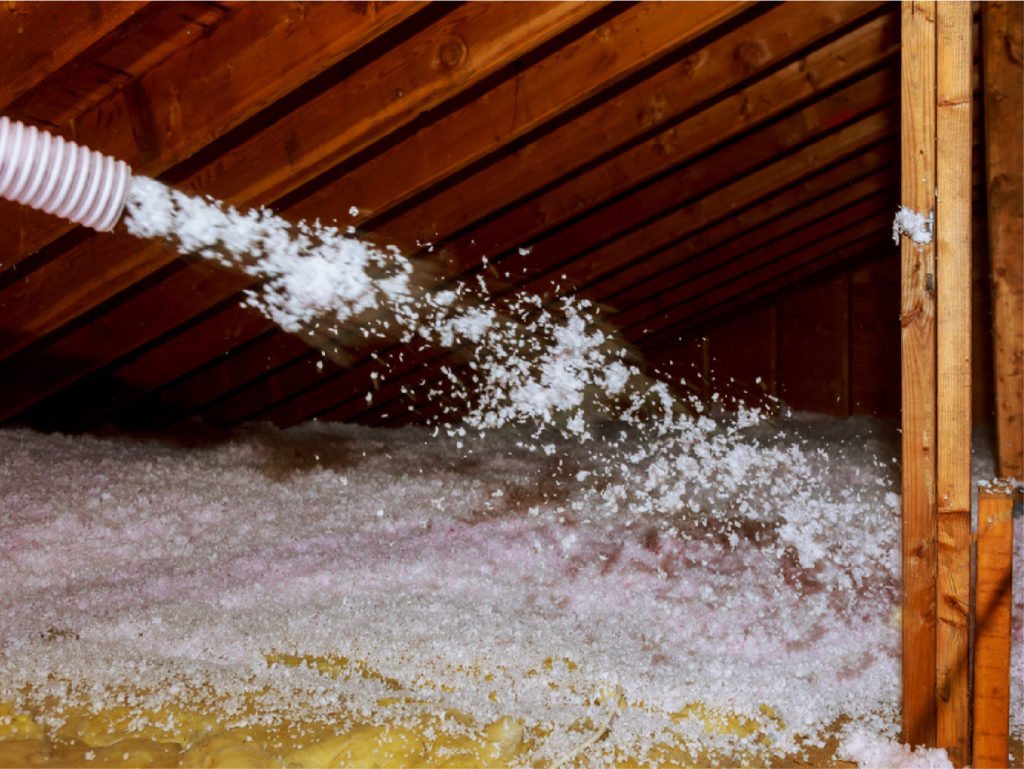
Get Your Furnace Serviced
To prevent your furnace from overworking, you’ll want to get it checked to ensure that everything is working properly. It is recommended that furnaces are serviced at least once a year, especially before the colder months set in. Most HVAC shops have some sort of Planned Maintenance agreement. A Spurk HVAC specialist can check all aspects of the furnace and perform a quick tuneup to get your system functioning correctly.
